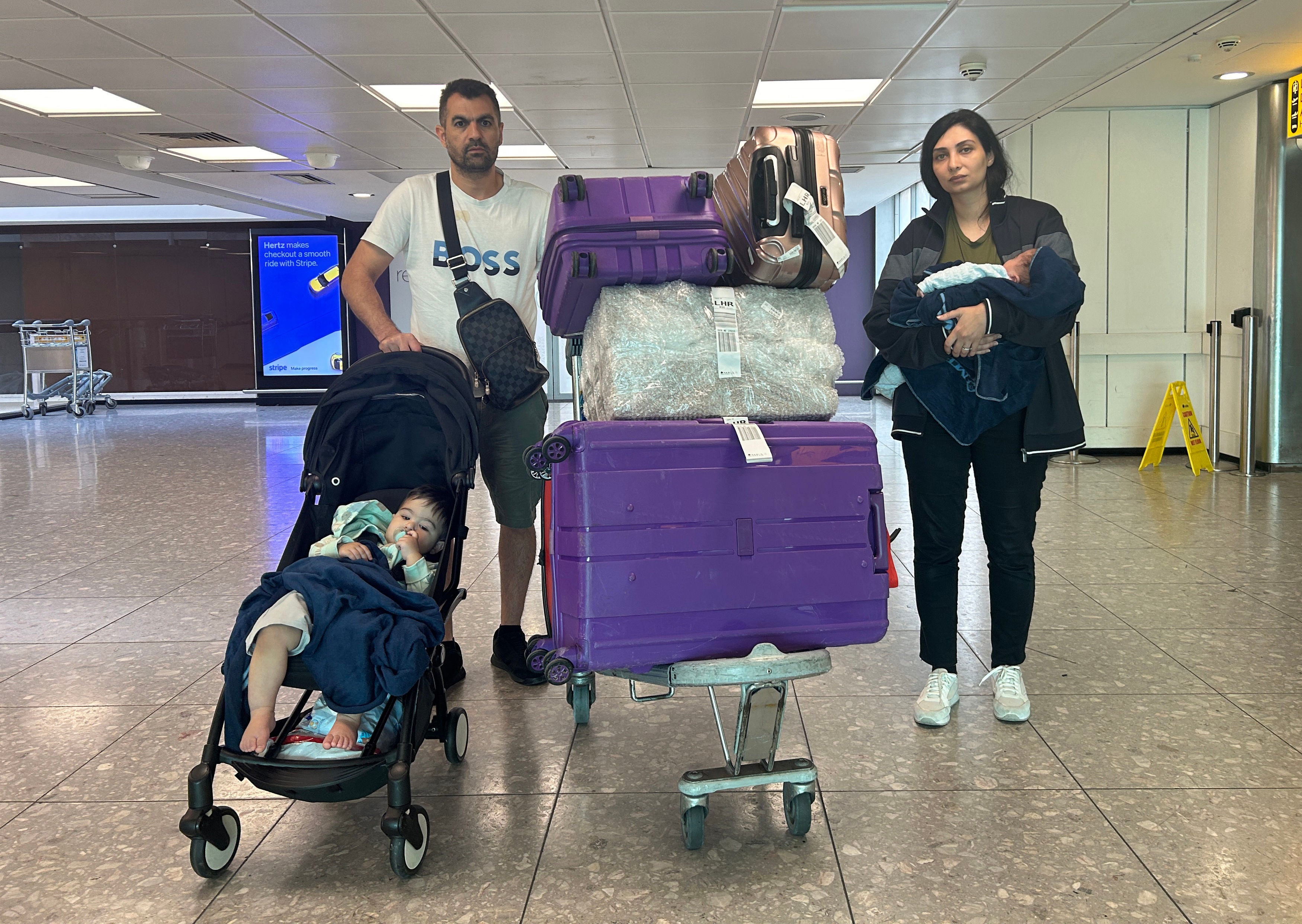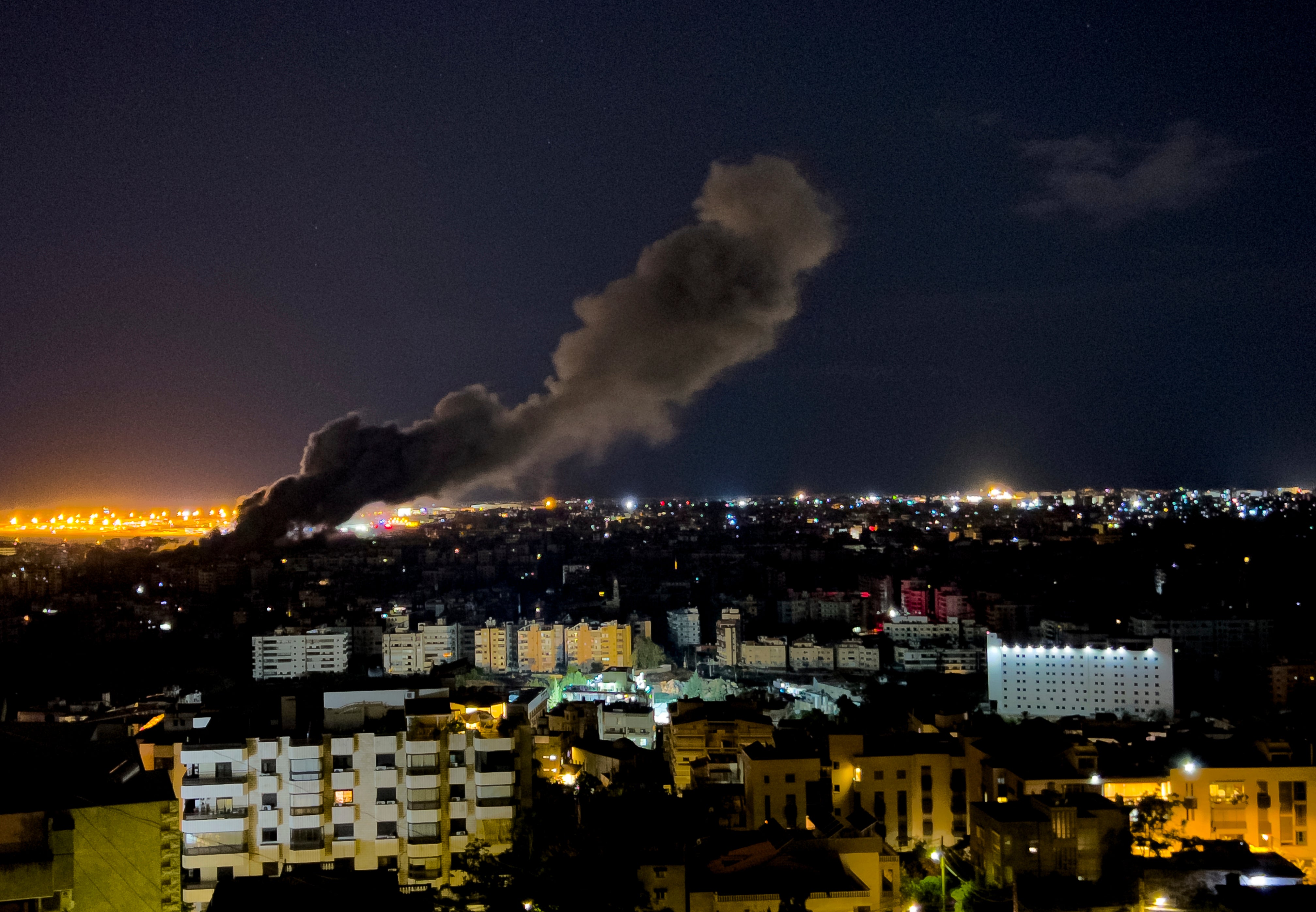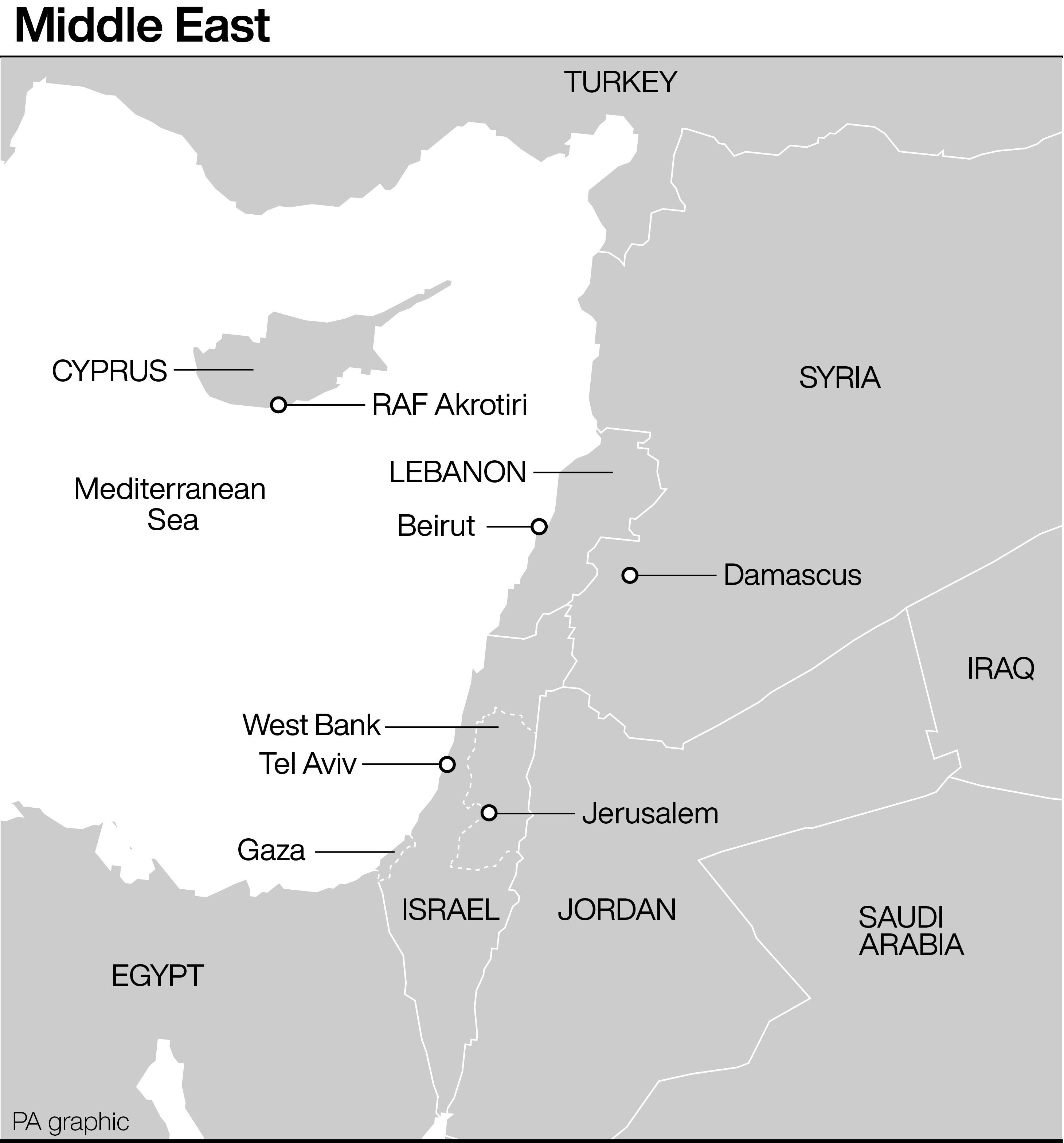UK government charters flight for British citizens to flee Lebanon: ‘We are in a state of terror’
The foreign secretary, David Lammy, has reiterated calls for Britons in Lebanon to leave as he says the government will do ‘all that we can’ to assist

Your support helps us to tell the story
From reproductive rights to climate change to Big Tech, The Independent is on the ground when the story is developing. Whether it's investigating the financials of Elon Musk's pro-Trump PAC or producing our latest documentary, 'The A Word', which shines a light on the American women fighting for reproductive rights, we know how important it is to parse out the facts from the messaging.
At such a critical moment in US history, we need reporters on the ground. Your donation allows us to keep sending journalists to speak to both sides of the story.
The Independent is trusted by Americans across the entire political spectrum. And unlike many other quality news outlets, we choose not to lock Americans out of our reporting and analysis with paywalls. We believe quality journalism should be available to everyone, paid for by those who can afford it.
Your support makes all the difference.British citizens seeking to flee Lebanon have described being in a “state of terror” as Israel has launched a ground invasion against Hezbollah – with the UK government having chartered flight out of the country for Wednesday.
Israel says it has begun a “limited” invasion of southern Lebanon, as troops carried out a number of raids this morning following weeks of aerial bombardment which have seen more than 1,000 people killed, according to the Lebanese health ministry.
Victoria Lupton, 37, will leave Lebanon with her young family on Wednesday. “Nobody in the country feels safe”.
“Everybody is living in a state of terror, and it’s intensifying every day – every day is feeling like a week,” Ms Lupton. “I think there now is a full-scale war, at least between Lebanon and and Israel.”
“I mean, Israel just launched a ground invasion, so I don’t know how you can get much more full-scale than that,” Ms Lupton added.
The foreign secretary, David Lammy, said: "I intend to put on a charter flight using commercial services tomorrow (Wednesday], and I'm seeking more capacity over the coming days so that people can return to our country over the next few days whilst the airport is still open.
"But I have warned and cautioned now for months that we have seen, in previous crises between Israel and Lebanon, the airport close, and we cannot guarantee that we will be able to get people out in speedy fashion.
"And of course, this is now turning into a very, very concerning situation on the ground."

Some 4,000 to 6,000 British nationals are thought to be in Lebanon and they have been encouraged to register with the UK authorities as efforts are stepped up to provide routes out on flights. British nationals and their spouses, partners and children under 18 are eligible for the UK charter flight, and those who are vulnerable will be prioritised.
Some British nationals have lamented what they describe as poor communication from the British embassy in Lebanon, leaving them in limbo as they try to leave.
UK military veteran Samuel Evans told The Independent he is being “ignored” as he tries to secure a short-term visa for his son – who is not a British national.
Mr Evans had tried to book himself and his son onto the chartered flight after he was offered a space by the UK embassy. They were not able to do so, as his son did not yet have a visa number.
Despite being informed that a decision had been made on his son’s visa application, Mr Evans says he has not been given the official result. Mr Evans told said he has “never come across such a bad Visa process”.
Wassim Kabbani, from Manchester, was not contacted by the UK embassy in Lebanon about a potential space on the chartered flight.
Ms Kabbani, who has lived in Lebanon for 16 years, was unaware that she had to re-register as a British citizen in Lebanon having been “registered with the embassy for years” – and having done so last October.
The Independent has contacted the Home Office for comment.

Mr Lammy, told broadcasters: “We cannot make guarantees in what is a febrile and fragile situation and I suspect more people are coming forward because they recognise that in previous conflicts of this kind it has been quite hard, actually, to get out of harm’s way.”
In a brief announcement released in the early hours of Tuesday morning, the Israeli military said it was targeting Hezbollah in areas close to the Lebanon border between the two nations.
The military added that air force and artillery units were carrying out attacks to support forces on the ground.
“A few hours ago, the IDF [Israeli Defence Forces] began limited, localised and targeted ground raids,” it said.
“These targets are located in villages close to the border and pose an immediate threat to Israeli communities in northern Israel.”
A number of nations, including Canada, Germany and Bulgaria are either already evacuating citizens or have reserved places on commercial flights.
British military assets have been deployed to Cyprus and the eastern Mediterranean in case an evacuation is required, although ministers and officials have stressed that Britons should leave immediately.
On Monday, the prime minister’s official spokesperson said Sir Keir Starmer has been “very, very clear” that British nationals “should leave now, particularly whilst commercial flights are still available”.

It is understood around 15 spaces for British nationals were secured on a flight which arrived on Sunday, and a further 40 on the flight due to leave on Tuesday.
The spokesperson said we are reiterating our calls for those to leave and to register their presence with us and book the first available flights.
Mr Lammy warned all sides to come to the table to avoid a wider war in the Middle East.
"None of us want a return to the years in which Israel found itself bogged down in a quagmire in southern Lebanon and pitched battles between Israeli soldiers and of course the Lebanese side," the foreign secretary said.
He added: "We have been warning for months that we risk a regional war with escalation on all sides and that is why we want to see an immediate ceasefire in Gaza and an immediate ceasefire in Lebanon.
"It is politics, discussion and diplomacy that will solve the problems before us and we urge, with partners, restraint at this time."